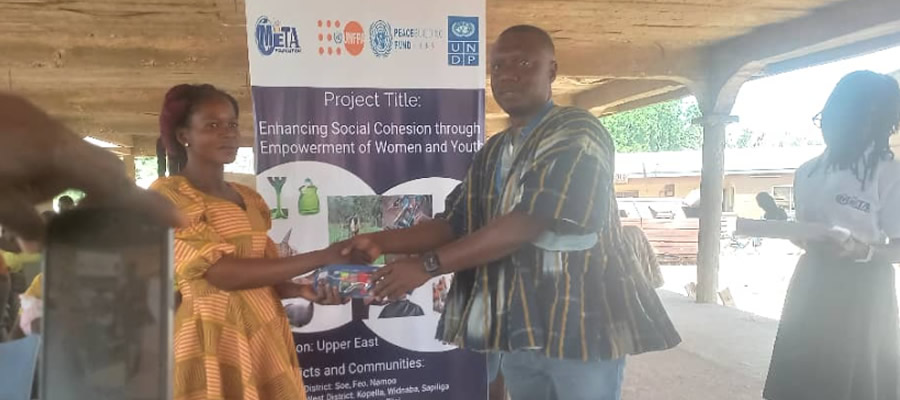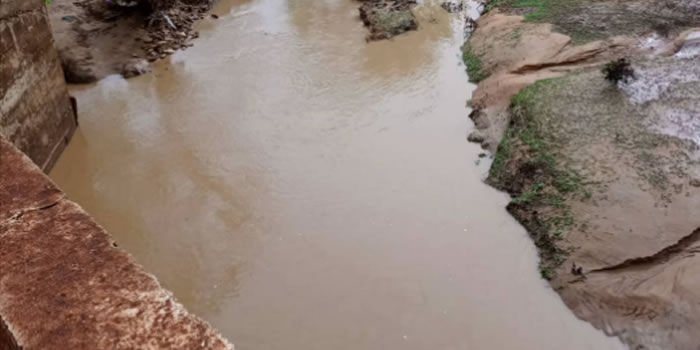

Vulnerability Analysis
The concept of vulnerability is concerned with the sensitivity of people’s wel-being to adversity. Adversity may take the form of a crisis or a trend/prolonged difficulty. Crisis (shocks), in turn, may be cyclic and highly predictable. In the Bongo District, there are a number of key difficulties and hazards that predispose people to vulnerability as indicated below:
The above groups of people have been excluded from the decision making process at the District. They do not also have access to credit to embark upon income generating activities in the District. Theses group of persons have therefore being predisposed to poverty as compared to other groups of people in the District.
The departments of social Welfare and the District Assembly as well as the Ghana Education service have been supporting children with difficulty seeing and hearing with some allowances to attend school. A Community Based Rehabilitation Programme, which is owned by the Anglican Church and working in collaboration with the District Assembly and funded by the Sight Savers International have been running a rehabilitation project in the district for the past ten (10) years.
It’s focus is on the persons with difficulty seeing, and they are given credit to engaged in any economic activities include rearing of small ruminants, rice parboiling, and other income generating activities. The project also does screening in the various communities to detect the partially blind to undergo surgery especially on cataract. The blind are also trained on daily living skills and other topical issues such as HIV/AIDS.
Achievements Of The Community Based Rehabilitation (Cbr) Project In Bongo
- The project has up to 2006 identified 254 (140 male, 114 female) blind and visually impaired in the Bongo district and provided them with rehabilitation services, that is counseling, Orientation and mobility and daily living skills training, Vocational training, and business management training.
- 168 blind persons (93 male and 75 (female) have received loans amounting to $117, 080,000. This has made most of them economically active.
- Empowerment programmes have been organized at regional and community levels in collaboration with GAB. This has developed participant’s advocacy skills.
- One hundred and eighty-five (185) cataract patients (99 male and 86 female) have been assisted to undergo sight-restoring cataract surgery.
- 247 schoolchildren in Bongo district have benefited from eye screening and treatment of various eye diseases.
- Communities have been educated causes of eye diseases/blindness prevention of blindness, treatment of eye diseases and services available to the blind.
- Members of the various communities now have people (trained volunteers) closed to them to approach for assistance on eye problems.
The practices of inimical gender biased traditions also abound in the Bongo District. These include practices such as degrading widowhood rites perpetrated against women, inequitable asset ownership, curtailment of girls rights such as Taazaba (Sister in bed) and night markets which usually result in teenage pregnancies.
The District Assembly’s Gender Desk with support from DISCAP (CIDA Funded Project) has been engaged in sensitization programmes on these inimical practices. The assembly has also formed a Gender Sub-Committee in the Assembly in order to disseminate information and educate communities on these unwanted practices.
Even though, a great number of people suffer domestic violence especially among women and children in the district, this has not been brought to the fore, people continue to suffer violence in silence in their homes. There is the need for an intensive education on Domestic Violence Bill and also its passage to forestall some of the violence perpetrated against women and children in their various households.
Child Trafficking is also a phenomenon in the district. This is usually done sometimes with the consent and connivance of parents and other times close relatives. The destination of the children are usually down south notably Accra and Kumasi - sound also go across the border to Burkina Faso and Sankasi in Togo,
Most of the children trafficked are usually girls and young women who are engaged in chop bars, head pottery and sometimes as domestic helps while the boys are usually engaged on farms.
Normally, these young girls come back with diseases such as HIV/AIDS ST’S and some come with unwanted pregnancies.
In 2004, the International lab our Organization assisted the Department of social Welfare to undertake a research on child lab our and child trafficking in the District.
The research report revealed a number of child labour and trafficking in the District. Based on these, a number of sensitization and training programmes have been held for communities, traditional Authorities and institutions such as the Ghana police service, Immigration service, custom and Excise service, the judicial service, the Ghana Education service and other decentralized departments.
Date Created : 11/18/2017 7:08:29 AM











 facebook
facebook
 X
X
 Youtube
Youtube
 instagram
instagram
 +233 593 831 280
+233 593 831 280 0800 430 430
0800 430 430 GPS: GE-231-4383
GPS: GE-231-4383 info@ghanadistricts.com
info@ghanadistricts.com Box GP1044, Accra, Ghana
Box GP1044, Accra, Ghana